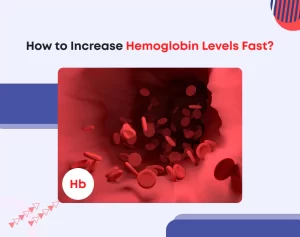
Can Diet and Exercise Reduce Your Risk of Blood Cancer?
Blood cancer, encompassing leukemia, lymphoma, and myeloma, impacts millions of people across the globe. While genetics and environmental factors play a role, research suggests that lifestyle choices, particularly diet and exercise, can impact the risk of developing blood cancer. In this blog, we explore how healthy eating and physical activity may help reduce your risk.
Understanding Blood Cancer
Blood cancer originates in the bone marrow and affects blood cells, leading to immune system dysfunction and other complications. While there’s no surefire way to prevent it, a healthy lifestyle can strengthen your body’s defenses against this disease.
The Role of Diet in Reducing Blood Cancer Risk
A well-balanced diet rich in antioxidants, vitamins, and minerals can help protect against cellular damage and inflammation, two major factors in cancer development.
Best Foods to Lower Blood Cancer Risk
Fruits and Vegetables – Rich in antioxidants, these help neutralize harmful free radicals. Cruciferous vegetables like broccoli, kale, and Brussels sprouts contain compounds that may reduce cancer risk.
Whole Grains – Brown rice, quinoa, and oats are packed with fiber, which promotes a healthy gut and reduces inflammation.
Healthy Fats – Omega-3 fatty acids in fish, flaxseeds, and walnuts have anti-inflammatory properties that support immune health.
Lean Proteins – Foods like chicken, turkey, beans, and tofu provide essential amino acids without excessive saturated fat.
Green Tea – Contains polyphenols that have been linked to cancer prevention.
Garlic and Onions – These contain sulfur compounds that may help in fighting cancer cells.
Nuts and Seeds – Almonds, walnuts, and chia seeds are rich in essential fatty acids and antioxidants.
Legumes – Lentils, beans, and chickpeas contain fiber and plant-based proteins beneficial for overall health.
Foods to Avoid
Processed Meats – High in nitrates and preservatives, which have been linked to cancer.
Sugary Foods and Beverages – Excess sugar leads to inflammation, which may promote cancer growth.
Refined Carbs – White bread, pastries, and processed foods can cause insulin spikes and inflammation.
Alcohol – Excessive consumption weakens immunity and increases cancer risk.
High-Sodium Foods – Too much salt may lead to dehydration and inflammation, increasing disease risk.
Trans Fats – Found in fried and fast foods, these contribute to oxidative stress in the body.
The Impact of Exercise on Blood Cancer Prevention
Physical activity plays a vital role in maintaining overall health and may reduce the risk of blood cancer by supporting immune function and reducing inflammation.
Best Exercises for Cancer Prevention
Cardiovascular Workouts – Activities like jogging, cycling, and swimming improve circulation and strengthen the immune system.
Strength Training – Lifting weights or doing bodyweight exercises enhances muscle health and boosts metabolism.
Yoga and Meditation – These practices reduce stress, which is linked to inflammation and weakened immunity.
Daily Movement – Walking, stretching, and staying active throughout the day contribute to overall well-being.
High-Intensity Interval Training (HIIT) – Short bursts of intense exercise followed by rest periods improve cardiovascular health and reduce inflammation.
Outdoor Activities – Hiking, gardening, and outdoor sports offer physical benefits and improve mental well-being.
Lifestyle Changes to Lower Blood Cancer Risk
Maintain a Healthy Weight – Obesity increases inflammation and may raise cancer risk.
Quit Smoking – Tobacco contains carcinogens that harm blood cells.
Manage Stress – Chronic stress weakens the immune system, making it harder to fight disease.
Stay Hydrated – Drinking enough water helps flush out toxins from the body.
Get Regular Check-Ups – Routine screenings can help detect any early signs of illness.
Limit Exposure to Toxins – Reduce exposure to harmful chemicals in pesticides, cleaning products, and air pollution.
Prioritize Quality Sleep – Lack of sleep weakens immunity and increases the risk of chronic diseases.
Consume Probiotics – Yogurt, kefir, and fermented foods support gut health, which plays a role in immune function.
Final Thoughts
While there’s no guaranteed way to prevent blood cancer, adopting a healthy diet and active lifestyle can significantly lower your risk. By choosing nutritious foods, staying physically active, and making smart lifestyle choices, you can enhance your overall health and strengthen your body’s natural defenses against disease.
Remember, prevention is always better than cure. Start making small, healthy changes today for a better, healthier tomorrow!






